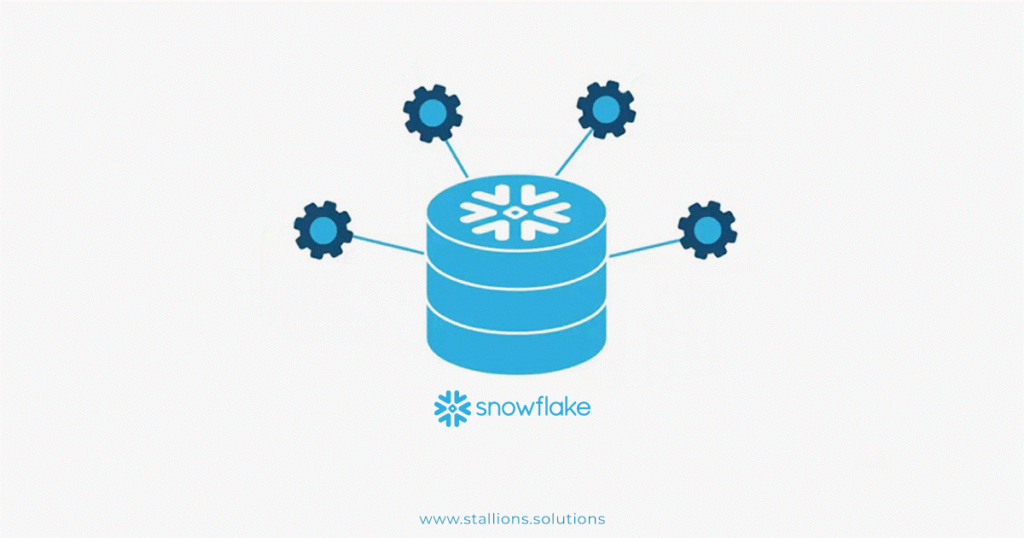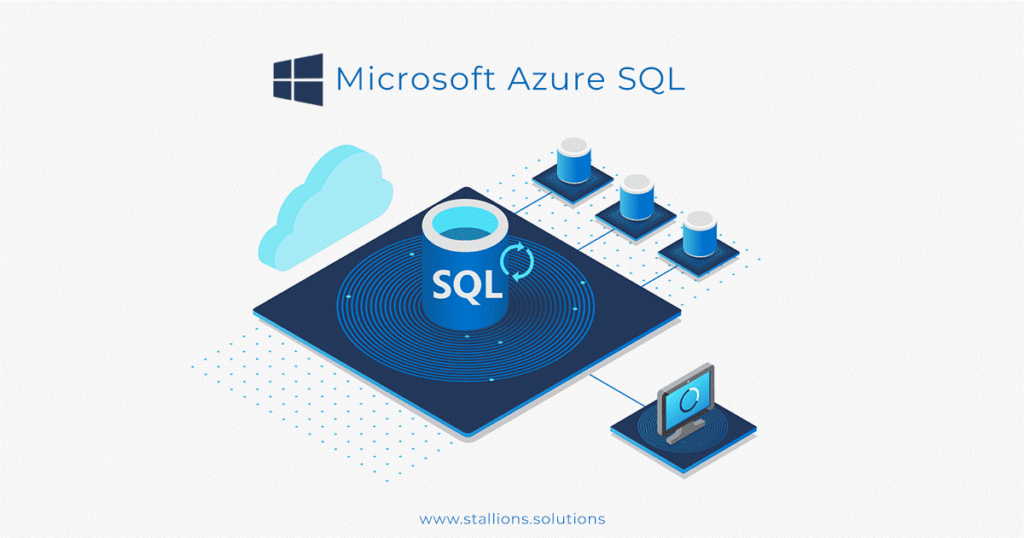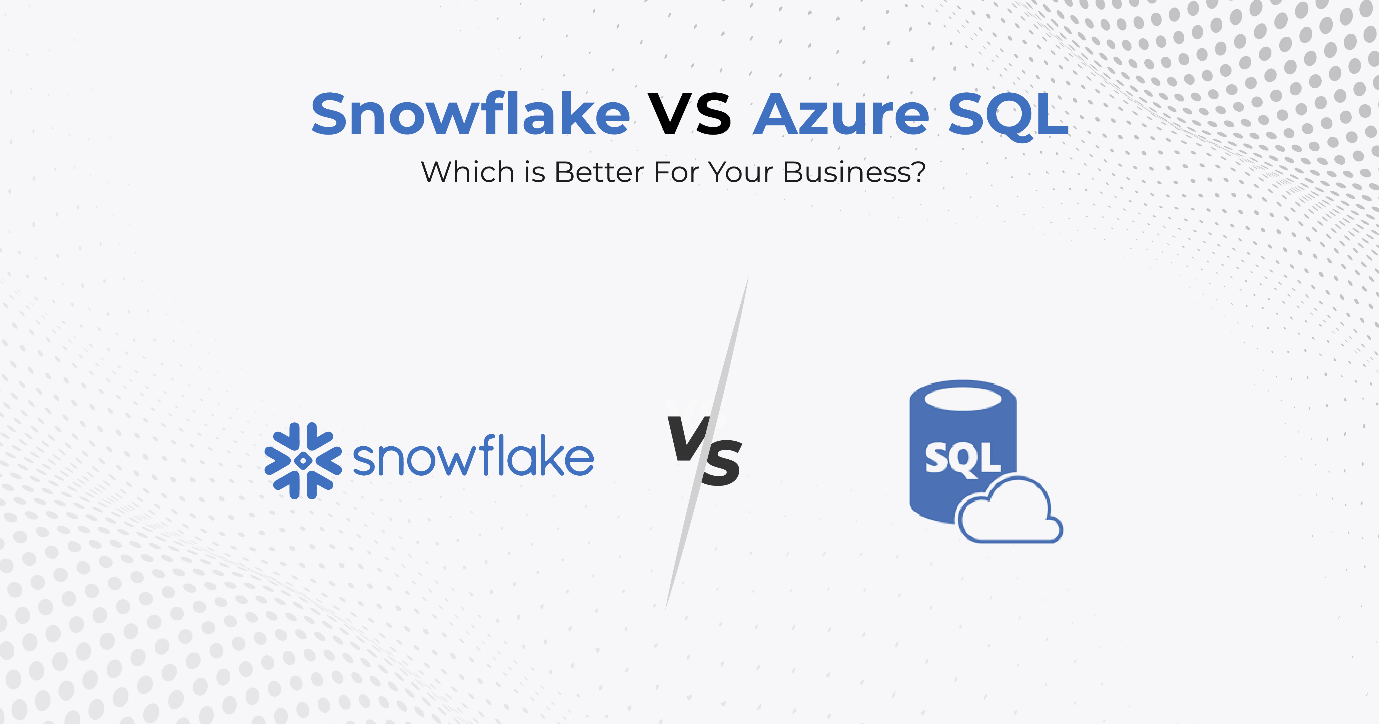Data and information are growing rapidly as the use of the internet grows day by day. And for data managers and admins, maintaining the data becomes more important. Choosing the best data handling platform that can manage and control the data effectively, quickly, and in a short amount of time is a challenge. So, for a few years now, the data management architecture has benefited from cloud computing techniques. A full comparison of Snowflake vs Azure SQL is essential to make a successful and cost-effective decision for your specific use case. They have many things in common as well as differences. In this article, you will learn about the significant differences between Snowflake vs Azure SQL. If you are interested in learning more about Azure Snowflake, here is the detailed article: https://dev.stallions.solutions/blog/what-is-azure-snowflake/
What is Snowflake?

Snowflake is a cloud-based data warehousing platform that allows businesses to store, manage, and analyze large amounts of data in a scalable and cost-effective way. It was founded in 2012 by three data warehousing experts and launched in 2014. Snowflake’s architecture is designed to separate storage from computing, allowing for the two components to scale independently. This allows users to easily and efficiently store and access massive amounts of data, while only paying for the computing resources they use.
Snowflake also provides a variety of features and services, including data ingestion, data transformation, data loading, data querying, and data sharing. It supports a range of data sources and data types, including structured, semi-structured, and unstructured data.
Snowflake is highly regarded for its ease of use, scalability, and security features. It has become a popular choice for businesses looking to modernize their data infrastructure and control the power of big data.
Advantages of Using Snowflake
There are several advantages of using Snowflake as a cloud-based data warehousing platform:
Scalability
Snowflake is designed to scale up and down as your data needs change, allowing you to add or remove computing resources as necessary. This means you can easily handle massive amounts of data and peak loads without having to invest in expensive hardware.
Cost-effective
Snowflake operates on a pay-per-use pricing model, meaning you only pay for the computing resources you use. This can help businesses save money on their data warehousing costs, as they don’t need to invest in expensive hardware or maintain their own data center.
Performance
Snowflake’s architecture is optimized for performance, with a separate storage layer that allows for fast data retrieval and processing. This ensures that queries run quickly and efficiently, even on large datasets.
Security
Snowflake has built-in security features, including role-based access control, encryption, and compliance certifications. This helps to protect sensitive data and ensure regulatory compliance.
Ease of use
Snowflake is easy to set up and use, with a web-based interface that allows you to manage your data warehouse and execute queries without requiring any specialized knowledge.
Data Sharing
Snowflake allows for easy and secure data sharing between organizations, making it an ideal platform for collaboration and data partnerships.
Overall, Snowflake’s combination of scalability, cost-effectiveness, performance, security, ease of use, and data-sharing capabilities make it a powerful tool for modern data warehousing.
Disadvantages of Using Snowflake
While Snowflake has many advantages as a cloud-based data warehousing platform, there are some potential disadvantages to consider:
Loading data in bulk
Companies may find it difficult to move their data to Snowflake since it offers Snow Pipe for continuous data loading, which is useful in some cases but not in others.
Support for Unstructured Data
Snowflakes currently supports structured and semi-structured data, but most large and well-known firms are expecting unstructured data support, which will improve the features, capabilities, and flexibility of the company and cloud computing platforms.
Limited functioning tools
Snowflakes can only work on a few cloud tools, AWS, Azure, and Google Cloud, which limits its work and restricts its flexibility and availability at cloud platforms in the IT environment.
What is Azure SQL?

Azure SQL is a cloud-based relational database service provided by Microsoft Azure. It is a fully managed database service that allows users to easily create, manage, and scale SQL databases in the cloud. Azure SQL is built on Microsoft SQL Server technology and provides the same features and capabilities as an on-premises SQL Server database. Azure SQL offers a range of deployment options, including single databases, elastic pools, and managed instances, with support for multiple programming languages and frameworks. It provides a high level of security and compliance with industry standards, including GDPR, HIPAA, and ISO.
Some of the key features of Azure SQL include automated backup and disaster recovery, automatic tuning and optimization, high availability, and intelligent performance monitoring. It also provides integration with other Azure services, such as Azure Data Factory, Azure Stream Analytics, and Azure Logic Apps, for data integration and workflow automation.
Overall, Azure SQL provides a reliable and scalable solution for managing relational databases in the cloud, with the flexibility and agility to meet the changing needs of businesses and organizations.
Advantages of Using Azure SQL
There are many advantages to using Azure SQL, some of which include:
Scalability
Azure SQL provides scalable database solutions that can quickly adjust to changing workloads, making it easy to manage high-volume data processing and applications.
Cost-effective
With Azure SQL, you only pay for what you use, which makes it a cost-effective solution for small and large businesses.
High availability
Azure SQL ensures the high availability of your data with built-in redundancy and failover capabilities.
Security
Azure SQL provides high-level security features, including automatic database backups, encryption of data in transit and at rest, and advanced threat detection and security management tools.
Easy management
Azure SQL is a fully managed service, which means that Microsoft takes care of managing and maintaining the infrastructure, freeing up your IT resources to focus on other critical tasks.
Integration with other Azure services
Azure SQL easily integrates with other Azure services, including Azure Data Factory, Azure Stream Analytics, and Azure Logic Apps, allowing for a seamless end-to-end data solution.
Overall, Azure SQL offers a highly scalable, secure, and cost-effective solution for managing relational databases in the cloud, with a wide range of features that can help businesses and organizations meet their data management needs.
Disadvantages of Using Azure SQL
While there are many advantages to using Azure SQL, there are also some potential disadvantages to consider:
Dependence on the Internet
Azure SQL is a cloud-based service, which means that it requires an internet connection to access and use. If you have slow or unreliable internet connectivity, it may affect the performance of your database.
Limited control
With Azure SQL, you are relying on Microsoft to manage and maintain the underlying infrastructure, which means that you have less control over the system than if you were managing it yourself.
Compatibility
While Azure SQL offers compatibility with many programming languages and frameworks, it may not be compatible with all the software and tools you currently use in your organization.
Data Sovereignty
Azure SQL is hosted in Microsoft data centers, which may not be in the same country or region as your organization. This can create issues with data sovereignty and compliance with local data protection regulations.
Overall, while Azure SQL offers many advantages, it is important to consider these potential disadvantages and weigh them against your organization’s specific needs and requirements.
Conclusion
In this article, you learned about the key differences between Snowflake vs Azure SQL. Snowflake and Azure are cloud computing-based technologies with incredible capabilities and benefits that cause concern in the IT sector. Snowflakes and Azure are being used more and more, and even most IT engineers are eager to learn about them and change their career focus. The use of these cutting-edge cloud computing platforms can increase productivity, speed up business processes, and reduce the danger of threats and attacks against sensitive data that is stored online. We hope that reading this article grabbed the attention and interest of the readers in providing the relevant information.



